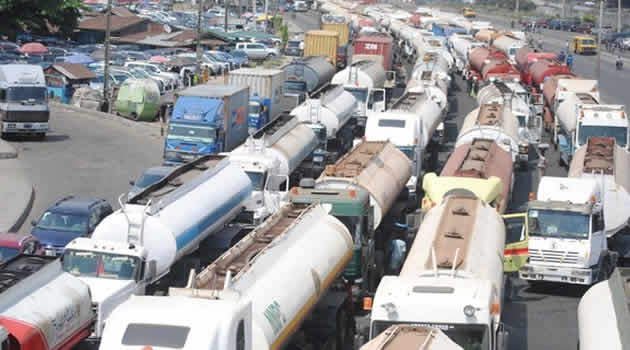Congestion on Apapa port roads in Lagos, eastern port reduced charges and other incentives may have encouraged more vessels to berth at the eastern ports.
There are currently 165 vessels moored at the eastern ports of Calabar, Rivers and Onne, findings by our correspondent have shown.
At the Rivers port, there are 50 vessels while 11 vessels are being expected.
Calabar has eight vessels while one is being expected.
Onne, which is the largest oil and gas free zone in the world, has about 107 vessels while 12 are expected.
It was gathered that all the vessels arrived this month.
The Lagos Port Complex has received 78 vessels while 61 are expected.
Read Also: Italy’s Borini Leaves AC Milan For Verona
The situation was the reverse in December 2019 as the Lagos port complex received 13 vessels while Calabar, Rivers and Warri ports berthed a total of six vessels; three, one and two respectively.
According to data obtained from the Nigerian Ports Authority Shipping Position, one of the vessels that called at Calabar port carried bulk wheat, another carried petrol while the third carried ballast.
The vessel that called at Warri port on December 29 carried tiles and floating glass.
On December 25, 2019, a vessel, Asian Champion, called at Rivers port with bulk wheat while another one, Tornado, berthed on December 30 with Premium Motor Spirit (petrol).
At the Lagos port, vessels called from December 24 to December 31 bearing items ranging from bulk sugar to bulk wheat, petrol and general cargo.
Traffic to the Lagos port was very heavy in December leading to spillover of congestion that started inside the port and extended to the access roads.
The situation is the same most year-end around Lagos port at the expense of the eastern ports.
This has been blamed for the constant gridlock along the ports and in Lagos as a whole.
Asked why the other ports outside Lagos could not attract vessel traffic, the NPA Managing Director, Hadiza Bala-Usman, said the decision to direct cargoes to ports outside Lagos was in the hands of the importers, adding nobody could force the importers to direct their cargoes to eastern ports.
On the preference for Lagos ports, an importer, Eddy Akwaeze, told our correspondent that insecurity and low sea draft had made the eastern ports unattractive.
He said, “These two factors make a port very unattractive. No importer wants to risk losing millions of naira worth of cargo because he took a decision to direct his cargo to a piracy prone region.
“Also, vessels are larger these days and if they should anchor at seas with low draft, they will be stuck and the damage will be huge.”
Eastern port drafts are between six and seven metres while the Lagos port drafts are between 10 and 11 metres.
Akwaeze called on the government to dredge the eastern ports to deeper draft to attract larger vessels.
In an effort to give the eastern ports deeper draft, the NPA in 2018, dredged the Escravos channel in Warri port for over N16bn.
However, the port could only be dredged to seven metres as the Nigerian National Petroleum Corporation pipelines buried underneath the sea bed prevented further dredging.
The authority also reduced charges on ships calling at the eastern port to woo vessels.
It encouraged flat-bottomed vessels that did not require much sea depth to call at the Rivers and Calabar ports.
These initiatives have yielded results as there has been an improvement of vessel traffic in the area, evidenced from the January traffic.
Between June and July 2019, 200 vessels called at Warri port following improved security around the area.
Stakeholders have, however, called for more efforts this year to improve the situation further and completely rid the Lagos port of congestion.
“The government needs to do more to divert cargoes to eastern ports. This should be done through strengthened security infrastructure as well as dredging the ocean for deeper draft,” the Zonal Coordinator, Save Nigeria Freight Forwarders, Dr Osita Chukwu, said.
An official of the Road Transport Workers Association of Nigeria, Mr Godwin Ikeji, said increased cargo traffic to the eastern ports would reduce both the cost of transportation and the challenge faced by transporters in Lagos.
NAN

